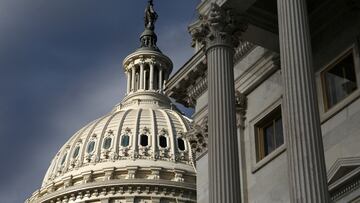How does McCarthy’s debt ceiling bill passed in Congress affect Medicaid and SNAP?
The House of Representatives has passed by a slim vote a measure on raising the country’s debt ceiling. The bill would affect Medicaid and food stamps.

In January, the United States reached its debt ceiling, the maximum amount the government can spend on its existing obligations, such as Social Security and military pay. Treasury Secretary Janet Louise Yellen notified Congress in January that the US could risk a default starting in June.
Before that happens, Congress must raise or suspend that debt ceiling to avoid dire economic consequences, such as spending cuts and a reliance on future income to pay its obligations.
However, the two houses of Congress have not agreed on a solution. The Republicans want to negotiate raising the debt ceiling and cutting government spending. Meanwhile, the White House and Democrats have taken the position that while spending cuts are necessary, they will not negotiate on the debt ceiling and will wait for Republicans to lift the limit without strings attached.
House of Representatives approves plan to raise the debt ceiling
On Wednesday, the Republican-controlled House of Representatives voted to pass the bill to raise the debt limit, cut spending, and reverse key pieces of President Joe Biden’s agenda.
The US House of Representatives narrowly passed a bill to raise the government's $31.4 trillion debt ceiling that includes sweeping spending cuts over the next decade https://t.co/ZNNpRFiyKZ
— Reuters (@Reuters) April 27, 2023
READ ALSO:
- Social Security Checks: Amounts and Dates Sent
- How does part-time work affect Social Security payments?
- Who qualifies for the Child and Dependent Care Credit and how to claim it
While the bill does not include cuts to Social Security or Medicare to address the debt ceiling, it does include a measure against Medicaid and food stamps.
How does the bill passed in Congress on the debt ceiling affect Medicaid and SNAP?
The measure is to require more low-income Americans to meet the work requirement in order to receive certain government benefits, particularly food stamps and Medicaid.
Related stories
According to the Republicans, this would reduce public spending and strengthen the country’s labor force. However, this measure would affect millions of people who are financially challenged and unable to afford certain foods or address their health care needs.
Although the House has passed the bill, it will most likely not advance in the Senate as Democrats oppose labor requirements, and other components of the legislation.


